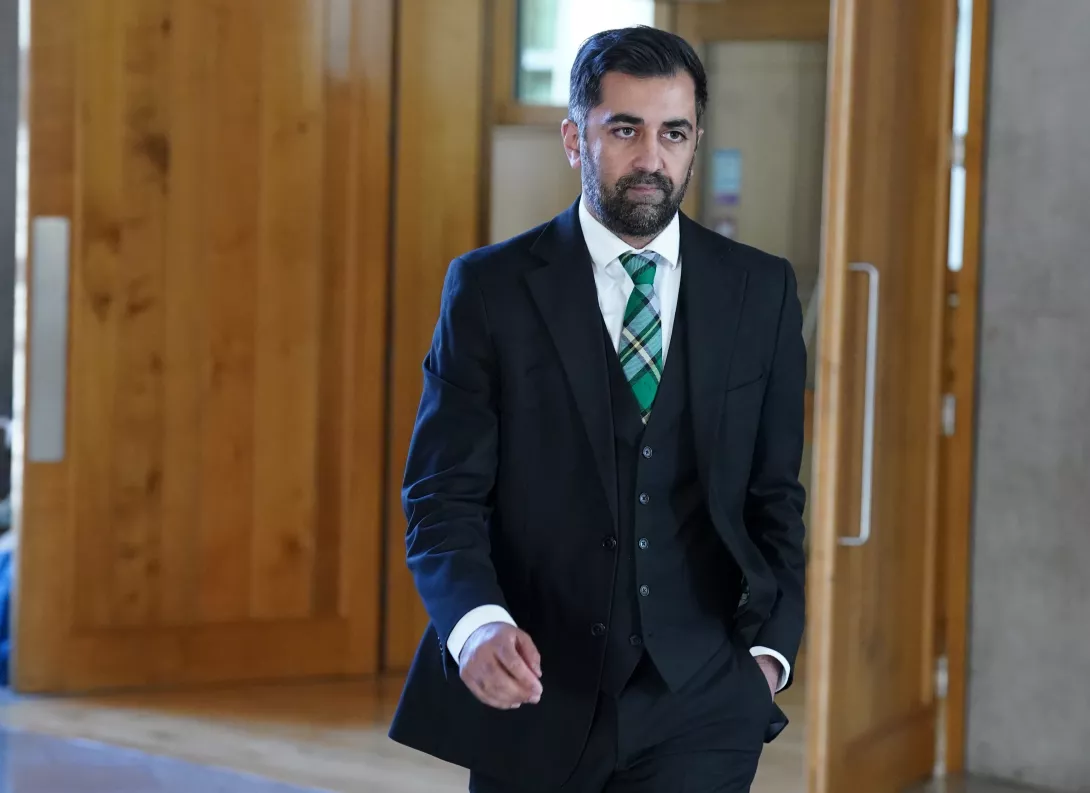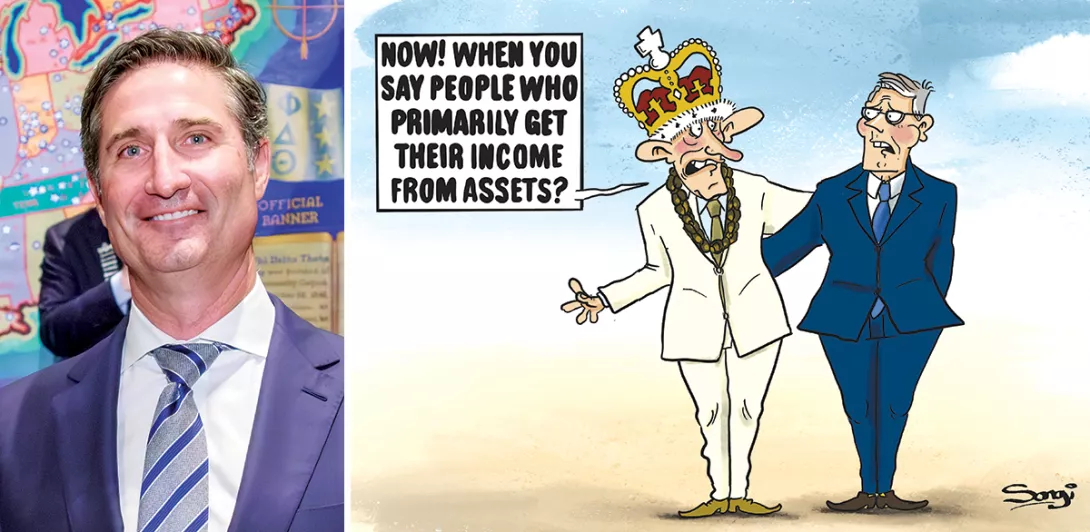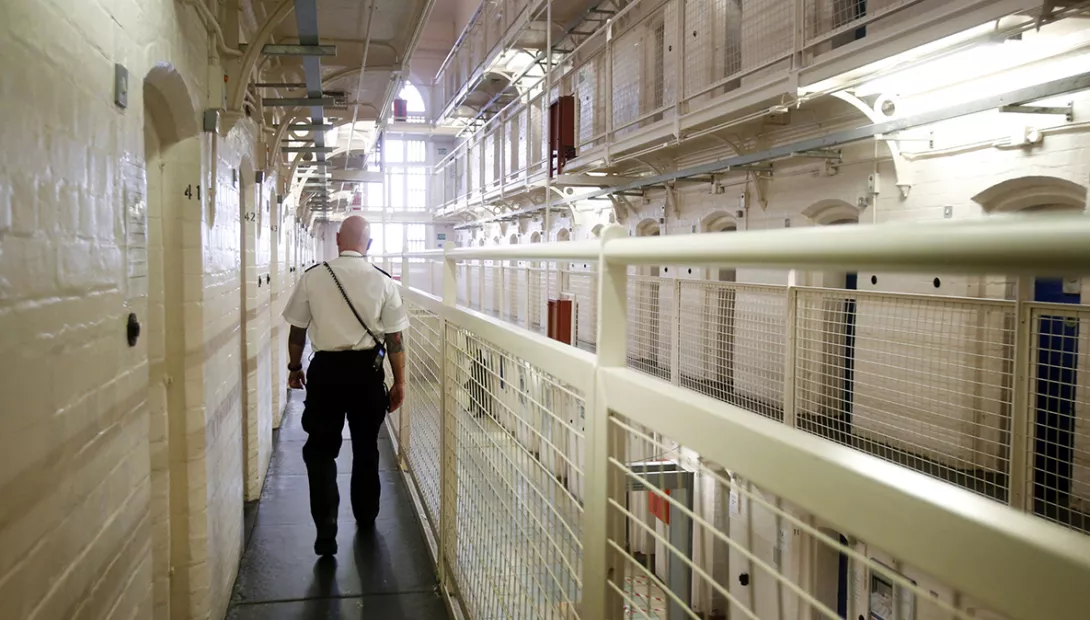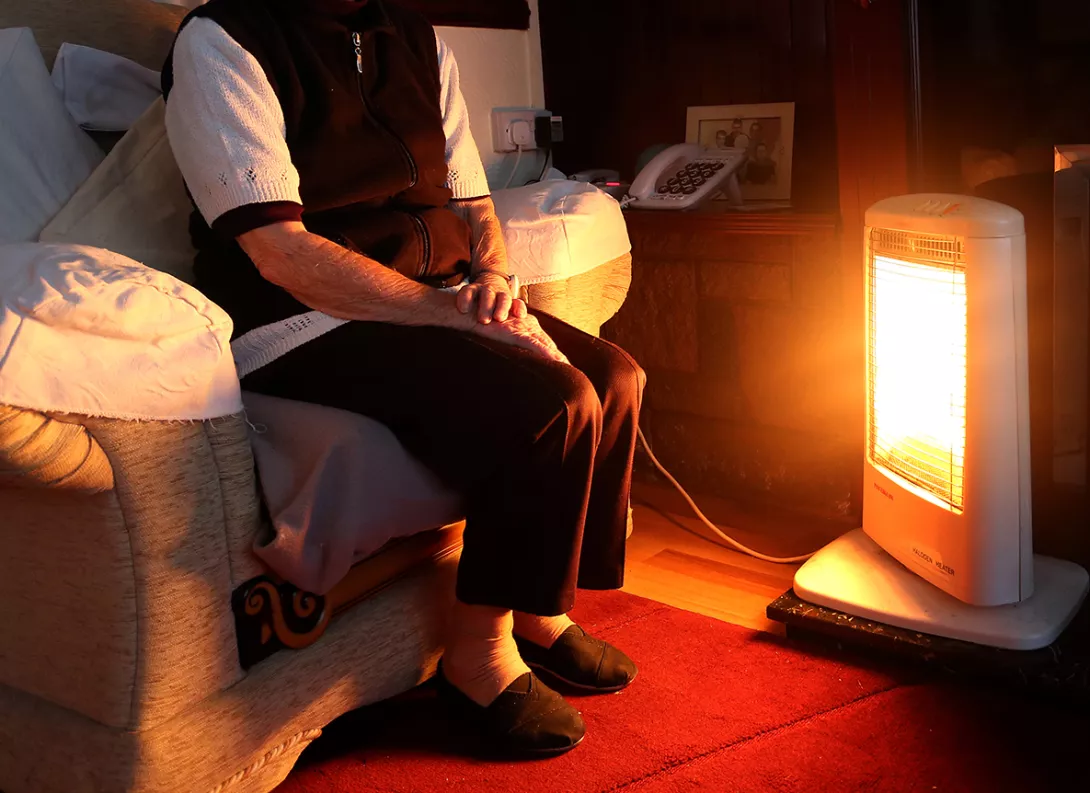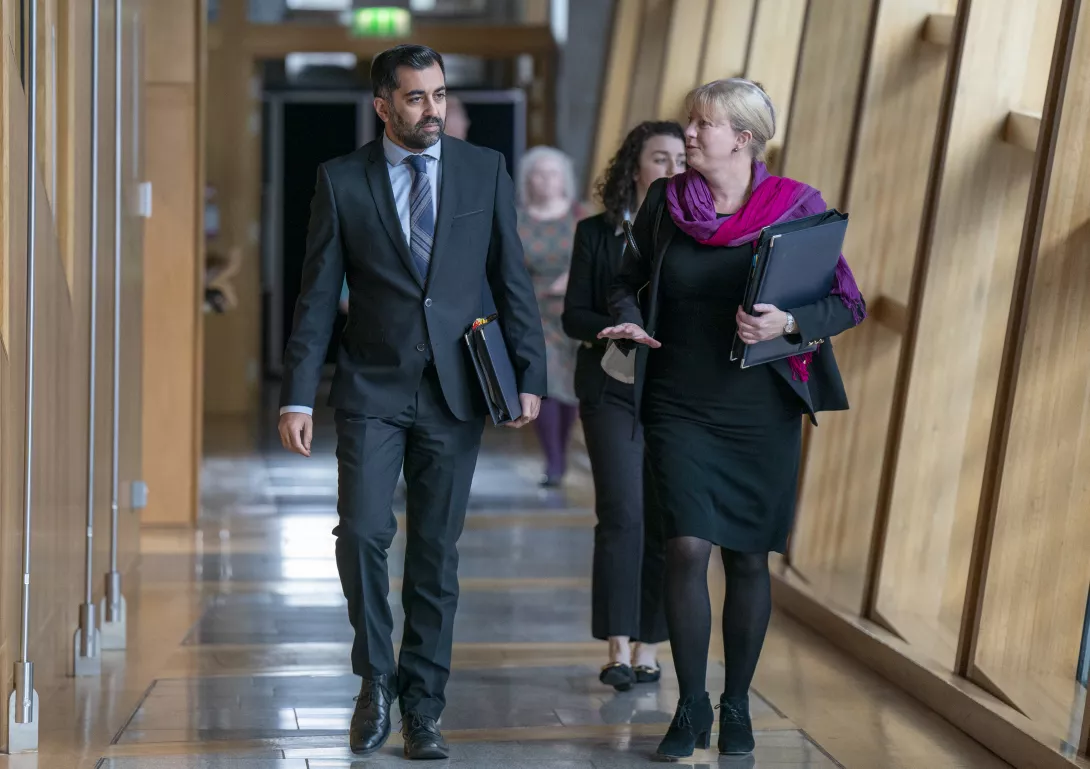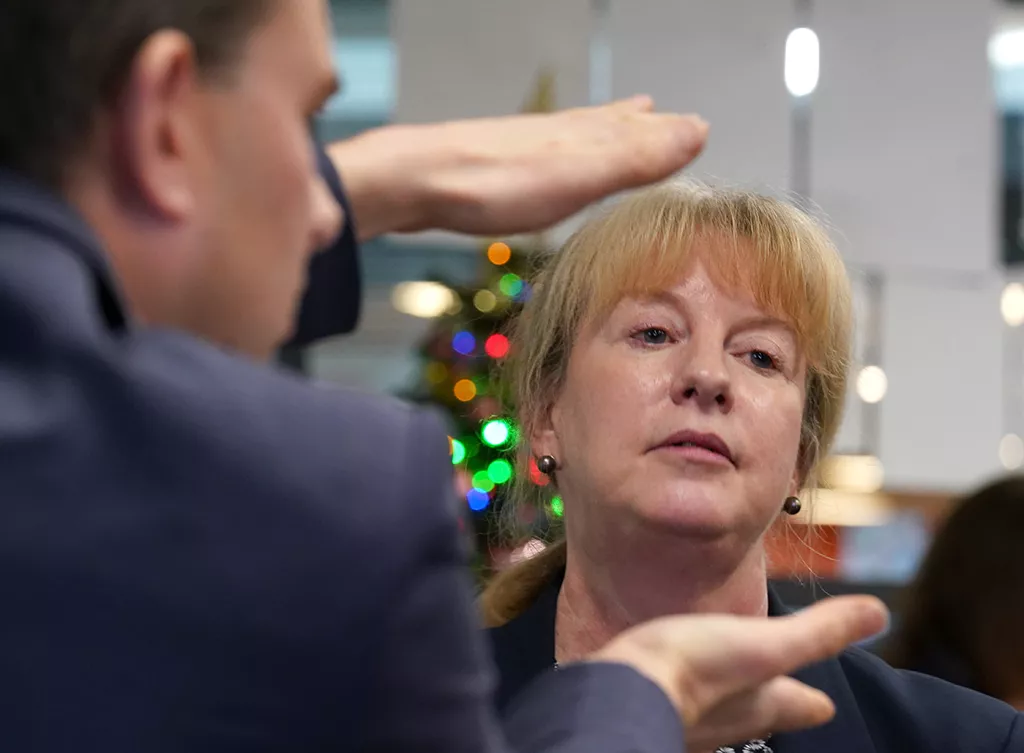
THERE’S a common cry in Scotland whenever the SNP-Green Scottish government are asked to spend some money — “The budget is fixed! Something, something, Westminster. Something, something Brexit.”
It is remarkable how many out there seem to believe this nonsense. I dare say some of the ministers might even believe it when they say it too, just before they wax lyrical about how Scotland chooses to have higher and more income tax rates in order to raise more cash.
Pretending that your budget is “fixed” while boasting that you’ve grown it by £1.6 billion a year is a lie, but it is almost taboo to call it such.
Of course it is true that any given Scottish Budget is dominated by the block grant from the UK Treasury, but as the Scottish government has itself demonstrated, this can be grown if there is the merest semblance of political will.
The irony of course is that the SNP, in power for 16 years, has done its level best to ensure the budgets of local government are fixed, and not in a good way. Just as the Scottish government receives the lion’s share of its cash from the UK Treasury block grant, so Scottish councils rely on the largesse of the Scottish government for around two-thirds of their income. The rest is largely made up of non-domestic rates and council tax.
That doesn’t sound so fixed either, does it? Well, non-domestic rates are set by the Scottish Parliament, so that’s fixed. They still have council tax though.
The SNP swept to power in 2007 promising to axe the regressive council tax and replace it with a local council tax, and free council tax in the interim.
The “local” income tax plan collapsed early on, however, when the Liberal Democrats withdrew their support on the grounds that the rate would be set nationally.
Not to be held back in their first attempt to fix local government spend, they embarked on a decade of council tax freezes enforced by threats of even greater cuts to council budgets than already being meted out should they not comply.
The compound effect of those unfunded freezes cost local services billions, and more than 20,000 council jobs. The Scottish government graciously agreed to allow a 3 per cent cap on increases for a few years before axing the freeze altogether in 2022.
For two brief years councils have enjoyed the merest whiff of room for manoeuvre, but nowhere near enough to undo the damage or even stop the rot, leaving many wondering why they should pay more for fewer services.
Now the big freeze has returned, with Finance Secretary Shona Robison promising £62 million in cuts to councils, and a further £144m slashed if they don’t play nice.
It seems to me though that it is about more than money, it’s a matter of respect.
Councils, which deliver most of the services you rely on every day — from education to roads and bins — are regarded as an afterthought, even when former First Minister Nicola Sturgeon proclaimed she wished to be judged on education.
If in doubt, the default since the dawn of devolution has been to centralise, first through ring-fencing for certain policies under the Labour-Liberal administrations, right up to the effective ring-fencing of the entire budget we see today under the SNP-Greens.
For some time now, I’ve wondered what exactly it will take for this situation to change.
Industrial action has grown across local government in recent years, and has been successful in winning pay deals approaching what workers in essential public services deserve, but with each year the budget nonetheless shrinks as do the number of workers.
Local government body Cosla has predicted a further 7,000 jobs will go over the next three years, not through compulsory redundancy — for now — but in quiet, piecemeal, fashion with early retirement actively encouraged, voluntary severance and vacant posts being deleted.
Every post deleted now has a tangible effect, some more predictable than others. Like other workforces, teachers have come under huge pressure as classroom assistants have largely gone the way of the dodo, but as councils increasingly avoid taking on staff permanently, the reliance on supply teachers has grown.
Now the students are noticing.
My father was expelled from school just before his O-level exams for organising a strike. He and his comrades were fighting for a smoking room...
Things have changed somewhat since then, but half a century on, his non-smoking granddaughter had to threaten to walk out of her school to get a teacher for Higher maths.
Yes, you read that right, a teacher.
She and her class had been informed that they would be folded into other, younger classes for the rest of the year as the school could not afford a supply teacher to cover them for the rest of the year, and they were having none of it.
Thankfully, the threat was enough, a teacher was found, and no-one was expelled.
We can but hope that the students in that class will remember what’s possible when they move on to the workplace, but maybe the rest of should be learning the lesson too.
It is right that workers threaten or take industrial action to win not only a decent living and standard of life, but the security and growth of services that make a society. But politicians need to do more than say they are “listening” or offer a few crumbs off the table now and then to avert embarrassment.
It’s a bit of running joke in local government that everyone knows when refuse collectors are on strike, but no-one would bat an eyelid if councillors did the same.
I dare say there is a kernel of truth in that, but it has become more true as the years have rolled by.
As budgets have dwindled and power drawn away, the fate of councillors has been for years to simply ration out the cuts in the way they find easiest to live with, whether they be in opposition or administration.
Administration is the word.
The leader of Scotland’s largest council, SNP’s Susan Aitken, argued in the Glasgow Times this week that people struggling with the cost-of-living shouldn’t be burdened with more tax and that the council tax freeze is a “no brainer.”
Well, it is mindless, but no more mindless than councils dutifully administering government cuts year after year.
You would struggle to find anyone willing to defend the council tax itself, but the only thing more regressive than cranking it up is freezing it to slash social care, education, or to see our parks, our galleries, and our libraries left to rot.
Cosla and councillors of all parties (including Cllr Aitken) have for years told the government where their actions will lead, and here we are, over a decade on, our services in tatters, and councils on the brink of insolvency.
Local democracy, local government, its workers, and everyone who relies on its services don’t need more administration, they need leadership willing to put up a fight.
As any worker knows, there comes a time when asking nicely isn’t enough and action is required.
As councils meet over the coming weeks to consider budgets which will further tear apart the fabric of our society, they must surely know that this cannot continue.
If some 16-year-olds who have known nothing in their lifetimes but cuts can understand the effects on their education, if they can organise and fight it, then so can councils.
Not a single budget set in any council chamber in the coming weeks will do anything but harm, and no council should pass one — that’s a councillors’ strike the government might notice.
